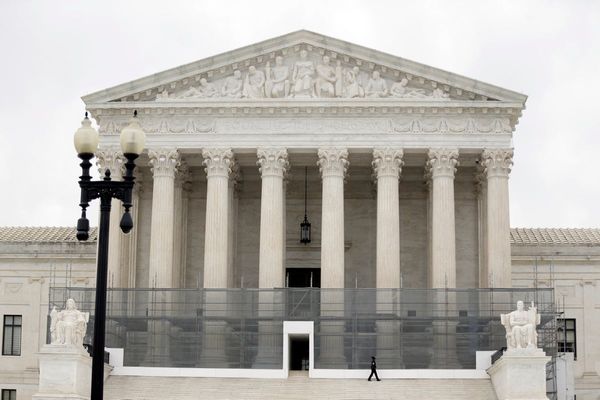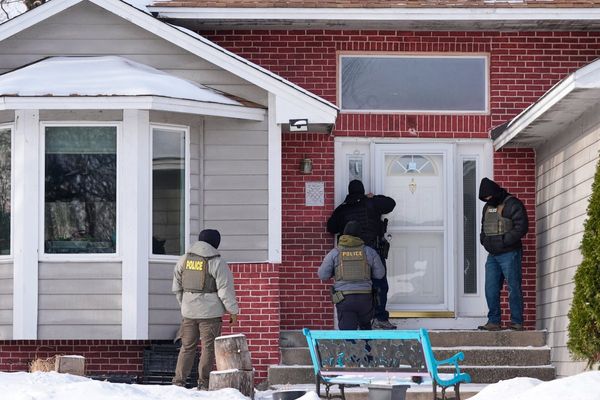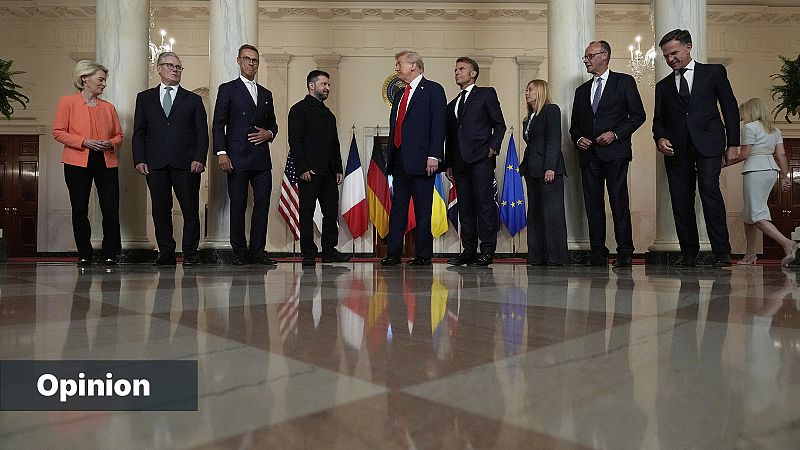
Russian President Putin must have seen something deeply displeasing in Washington on Monday: European unity and strength rather than the beratement and embarrassment of President Zelenskyy.
Putin had good reason to think that the last-minute Oval Office meeting with US President Trump and Ukrainian President Zelenskyy would be as contentious as it was in February. Zelenskyy and European leaders had little time to prepare their reactions to the Alaska summit, and Trump was eager to show quick progress towards peace negotiations.
But rather than witness Zelenskyy stand up to Trump on his own, Russia saw the Ukrainian president arrive in the White House in the company of the seven European leaders representing northern, southern, big and small countries as well as NATO and the EU.
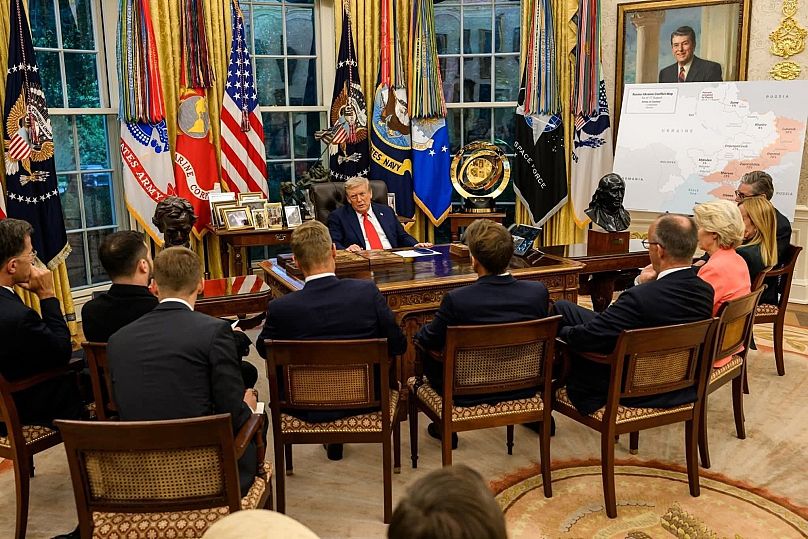
In Washington, the European message was clear: Europeans were united in their demands for ceasefire, for security guarantees and support for Ukraine. And by coming to Washington in such numbers they showed that Ukraine was not merely on Europe’s periphery but squarely in the European inner circle.
And in the White House, their aim was to pull Trump into the circle as well. Watching the conversation unfold, Putin must have seen that he, not Zelenskyy, was the odd man out.
A united front
European leaders are well-coordinated and now, seven months into Trump’s second administration, well-practiced at presenting a united front to defuse potential crisis related to Trump’s handling of global affairs. Their persistent charm offensive with the US president has bought them Trump’s ear and flattery.
Trump freely dispensed compliments to Chancellor Merz on his tan, to Finnish President Alexander Stubb on his youth, and to Italian Prime Minister Meloni on her enduring leadership. He even was warm to the EU Commission President Ursula von der Leyen. Despite deep skepticism for the EU in the past, he said he was “honoured” to have her at the table, and he admired that she was “more powerful” than the other leaders present.
This warmth was not merely a show: It had a policy impact.
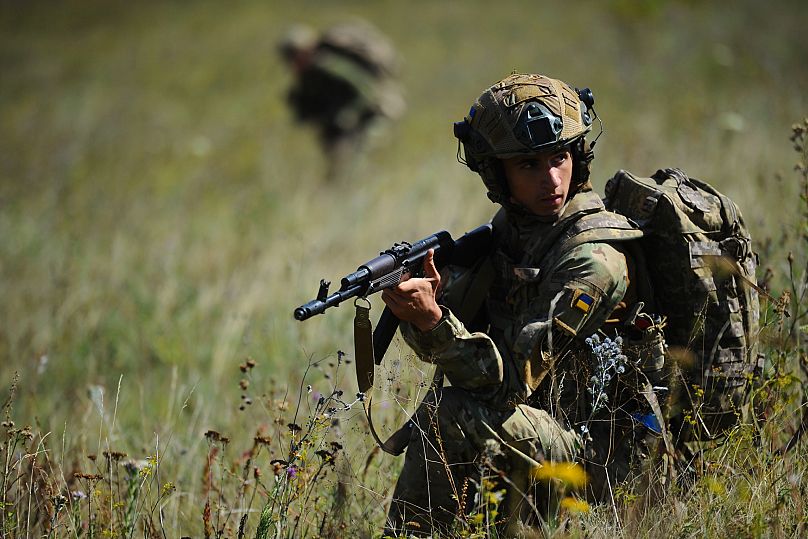
The European leaders’ resolve and unity put out the worst fires that could have come from a Zelenskyy-Trump bilateral. Trump did not publicly demand that Ukraine capitulate and acquiesce to Putin’s territorial demands. Ukraine was not deemed the impediment to peace.
In addition, the Europeans pushed the United States to seriously contribute to security guarantees for Ukraine. In the Monday meeting and after, Trump expressed openness to US cooperation in security guarantees. Yes, with caveats of no boots on the ground and probably with far less support than Europeans would like, but a few weeks ago, given Trump’s insistence that this is “not [his] war,” any US assistance for the coalition of the willing was off the table.
Now, US Secretary of State Marco Rubio is drafting the security guarantees for Ukraine and coordinating with European counterparts.
Embarrassing for some
Some European citizens are unhappy with the style their leaders take with Trump, finding it embarrassing to watch their leaders ingratiate themselves to him. And yet this approach has averted disaster. In June, Trump backed Article Five at the NATO Summit in the Hague. This week, Trump did not force Zelenskyy to submit to Putin’s demands. And the European leaders are keeping the US president engaged in European security.
Still, this is not enough. European leaders should not spend the next three and a half years merely putting out fires.
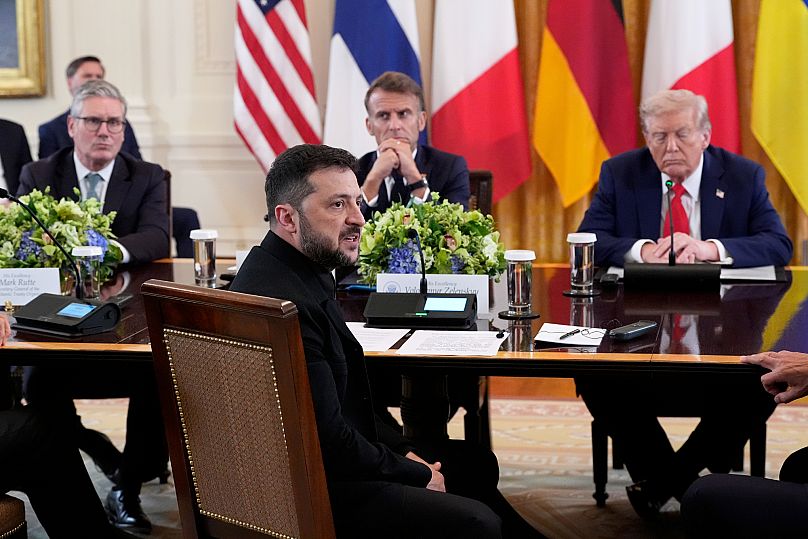
Instead, they need to embrace their aura of unity to become more capable defence actors on a faster timeline than they have been willing to do. Diplomatic unity in Washington is one form of strength Putin recognises, but having the manpower and military capabilities in place to make a coalition of the willing possible is more important.
Even if the United States contributes to security guarantees for Ukraine, and this is far from certain, the Europeans will have to provide the vast majority of manpower and firepower to any security force that provides a backstop in Ukraine.
The Trump administration’s inclinations to reduce the US military presence in Europe remains unchanged, and Trump’s personal desire to reduce risk to military personnel will limit the US’s involvement in a security force.
Europeans, who in the Middle Eastern wars of this century have been accustomed to playing the role of junior partner, will have to learn to flip the script.
Long term, such European defence strength will be essential for the entire continent, not just Ukraine. Europeans may be able to keep President Trump in their orbit through personal ties and smart diplomacy, but other, younger members of the Republican Party are far less inclined to help Europe stand up to Russia.
It will be easier for Europeans to keep the United States engaged in Europe if the US’ contribution is limited by design. Trying this approach in Ukraine will provide a good pilot for what needs to happen across the continent sooner than the Europeans would like.
Kristine Berzina is a Senior Fellow of US Defence and Transatlantic Security at the German Marshall Fund of the United States.




